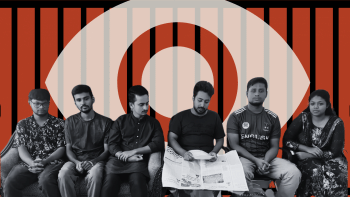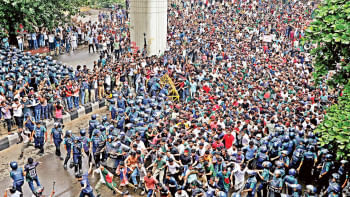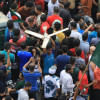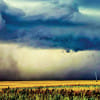In the aftermath of violence

"Are you okay?"
Friends, family and relatives from abroad all share the same concern. They keep asking while I keep reassuring them that I am okay, at least physically. That was more than enough to be grateful about, I explain. These days, they ask more questions, difficult ones and one of these questions keeps ringing in my head.
One of my school friends from Delhi had asked how I felt and I had no answer to that.
In my mind, I kept rewinding time to figure out when was the last time I really felt something. I tried very hard to remember the last thing I felt. Was it the annoyance of traffic jams caused by the quota protests? Or the deep-seated shame of being unable to empathise with the plight of my peers? Perhaps it was the shock of witnessing violence unfold on my own campus, or the momentary relief of our halls being freed from student politics. Maybe it was the anger at a system that demanded martyrdom before acknowledging legitimate grievances, or the frustration of being unable to stand in solidarity with the protesters, and the sorrow of scrolling through countless obituaries on social media? Was it the fear of becoming another victim, or the pride of belonging to a generation that had etched its name in history?
I do not know. The truth is I have been feeling so much and so little at the same time. There are things I feel a little more these days; like helplessness and vulnerability. And then there are things I no longer feel; like sleep and hunger. I spend hours on social media seeking updates and then regret being so adamant. The desire to stay informed is matched by an equal desire to escape the relentless barrage of distressing news. I cannot sleep in the comfort of my own home knowing what my peers are going through. Their dialogues haunt me as nightmares, pulling me out of a slumber of despair. I keep thinking how the list gets longer every day and how I can no longer keep up with remembering their names. I realise that the victims have formed a closer circle around me, from strangers to people I know. How do I label this feeling that seems to be strangling me every day, embracing me in a cloud of remorse and contempt?
So, as I refresh my news feed for the hundredth time, I realise another day has passed and I still do not have the answer to their question. There is nothing much I do these days, except for sharing these stories and saying a silent prayer. The weight of grief is suffocating, and I cannot imagine how long I can endure it. I carry the burden of shared loss because this is where I belong. I do not remember the last time I felt like this, all of it seems very new. It started with an excruciating pain which has now given way to numbness. My tears have dried up and are replaced by a sense of emptiness. I feel hollow if that is something you could feel, and I know that it is here to stay for a while.
All this while I realised that we are capable of feeling way more than our hearts can contain. Yet, amidst the despair, a flicker of hope remains. This makes me feel strong and alive when everything else is falling apart. It is a testament to the resilience of the human spirit, a force that united thousands of us in the face of adversity. This hope, fragile though it may be, is the only anchor in the storm. No matter what lies ahead, I want this hope to persist. It is probably the only feeling that makes sense right now.
Maisha Islam Monamee is finance major at the Institute of Business Administration, University of Dhaka and a contributor at The Daily Star.
Views expressed in this article are the author's own.
Follow The Daily Star Opinion on Facebook for the latest opinions, commentaries and analyses by experts and professionals. To contribute your article or letter to The Daily Star Opinion, see our guidelines for submission.

 For all latest news, follow The Daily Star's Google News channel.
For all latest news, follow The Daily Star's Google News channel. 










Comments